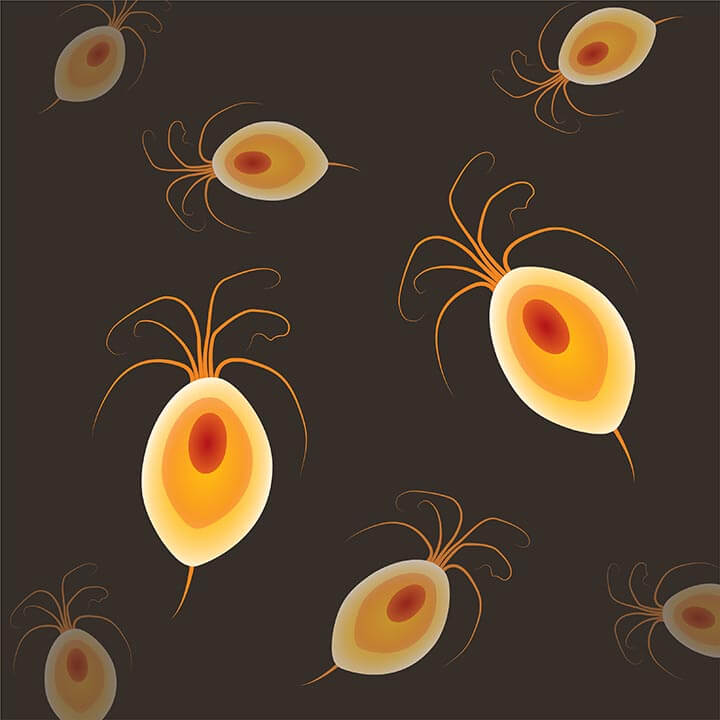Trichomoniasis (or “trich”) is a very common sexually transmitted infection (STI). It is caused by infection with a protozoan parasite called Trichomonas vaginalis. It infects the vagina in women or the urethra in men. Trichomoniasis is one of the most common causes of vaginitis in women.
Although symptoms of the disease vary, most people who have the parasite cannot tell they are infected.
How does it spread?
You get trich from having sex with someone who has it. It is spread through body fluids during unprotected vaginal or anal sex. Typically, trich is passed between the penis and vagina, and it doesn’t matter if a man ejaculates or not — it can be spread just through contact.
How do I know if I have it?
Most people are not aware that they have the infection — especially men. When women have symptoms, they may be
- frothy, bad-smelling discharge
- yellow or green discharge
- itching in and around the vagina
- swelling in the groin
- urge to urinate frequently — often with pain and burning sensations
Men rarely have symptoms. When men do have signs and symptoms, however, they might include:
- the urge to urinate frequently
- irritation inside the penis
- burning with urination or after ejaculation
- discharge from the penis
How to get tested?
See your doctor if you have a foul-smelling vaginal discharge or if you have pain during urination or sexual intercourse. If you’re a woman, your doctor will give you a usually painless pelvic exam to take a sample of your vaginal discharge. If you’re a man, your health care provider will take a swab from your urethra to get a sample of the discharge.
How to get rid of it?
The only way to not get trich is to abstain from having sex. If this too hard for you, using a condom for every sex act can lower your risk of getting the disease. If you already have it, a doctor will prescribe you antibiotic pills.
To keep from infecting your partners, you should avoid sex until you have taken all the antibiotics and your partner has been tested and treated if necessary. Always let your partner/s know if you have any kind of infection.
Source: http://www.teensource.org/std/trichomoniasis, https://www.plannedparenthood.org/learn/stds-hiv-safer-sex/trichomoniasis



